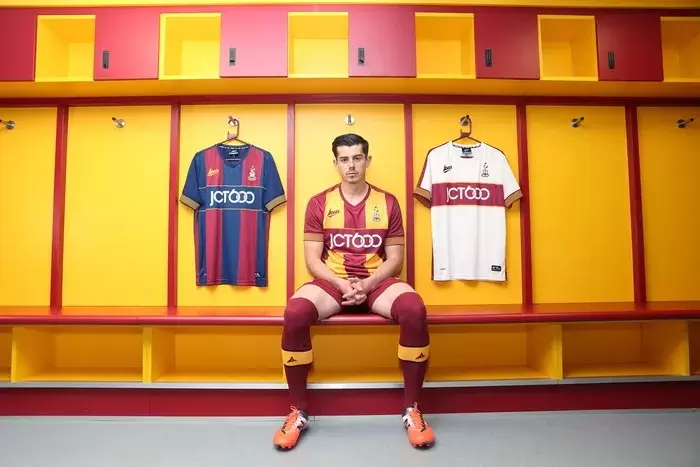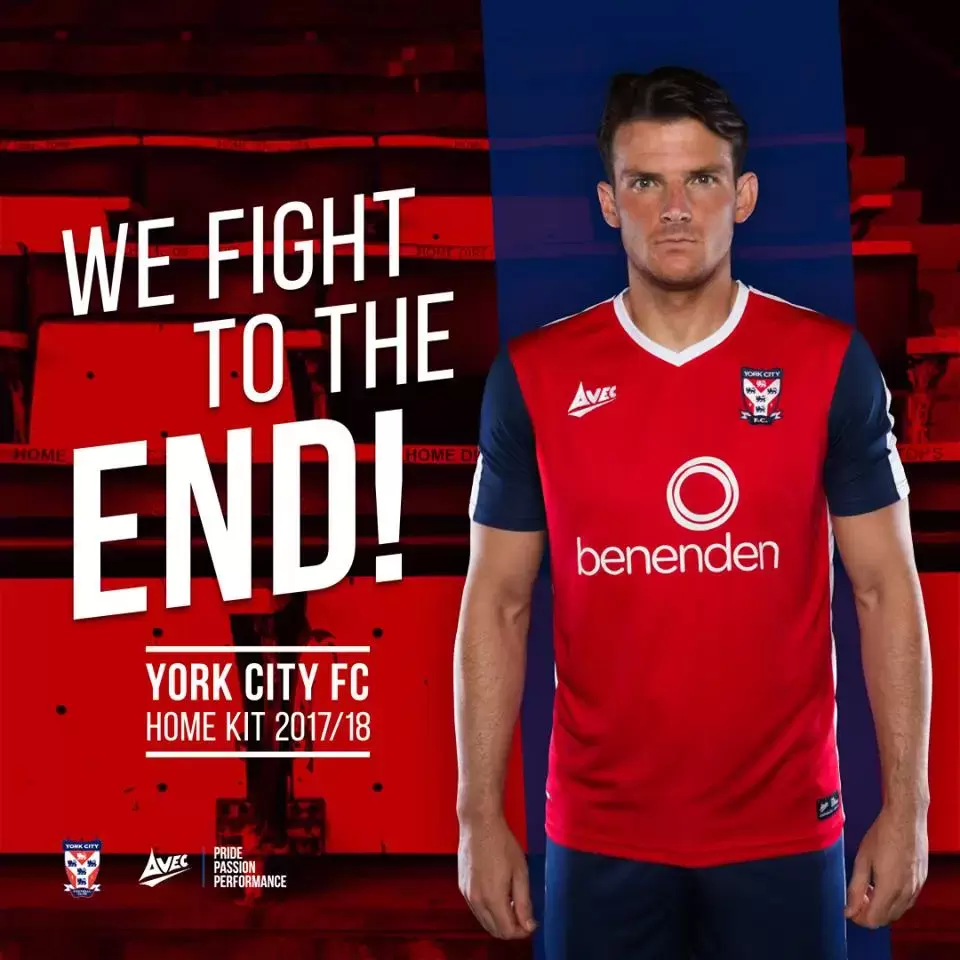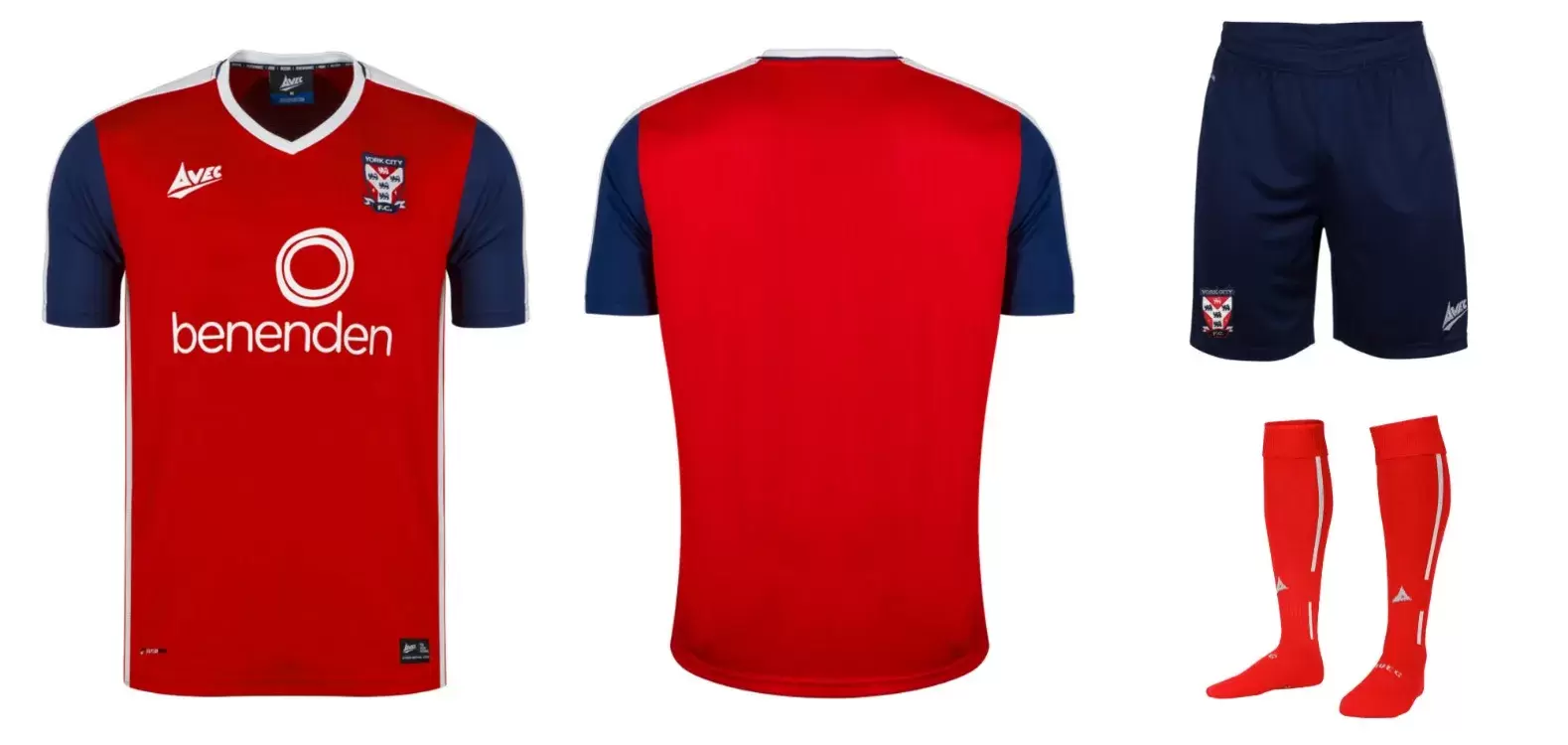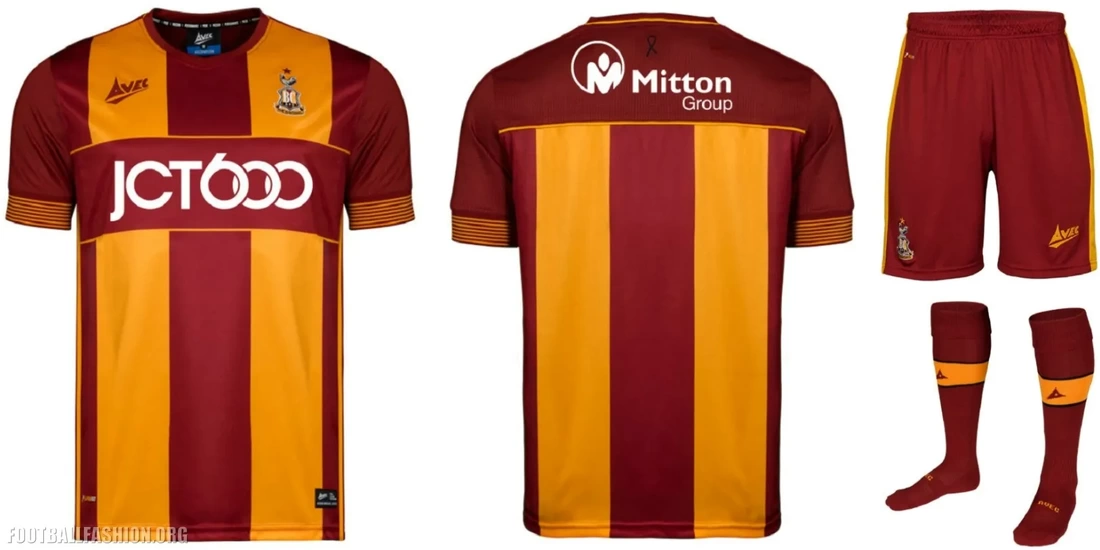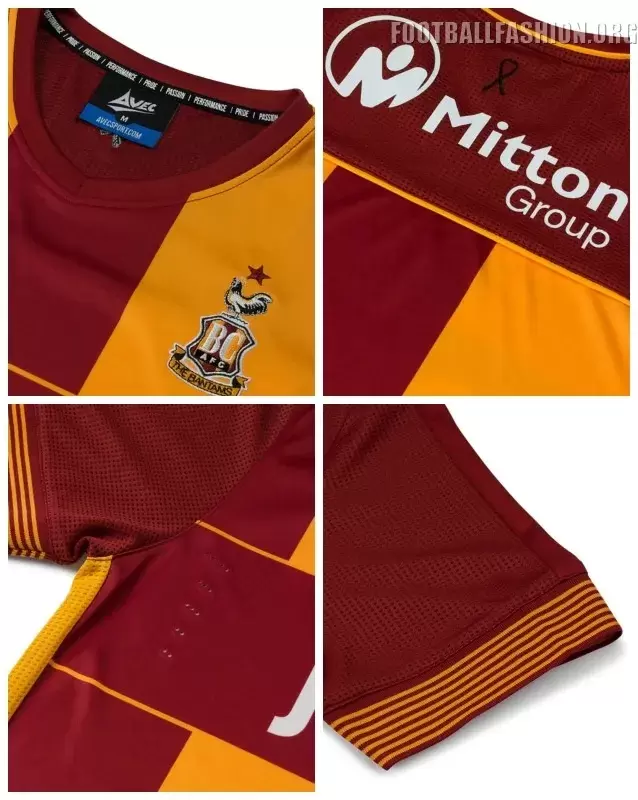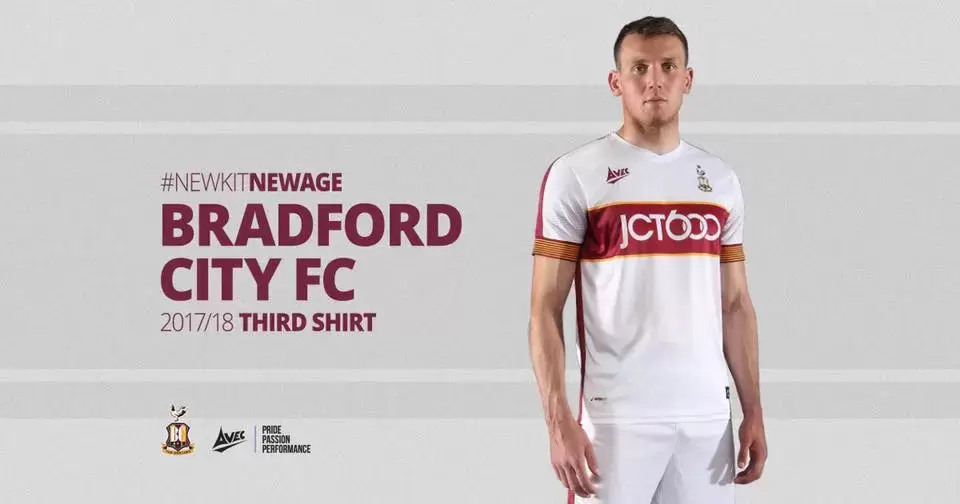|
This article has been taken from the Football Fashion website. View it in its original form here.
|
2017/18 |
|
Avec’s 2017/18 Bradford City and York City Kit Design Process
By Football Fashion Staff, August 24, 2017
The 2017/18 football season is well underway and there’s much to be excited about with new teams, new players, but most importantly, new kits. Two of these new kits in particular stand out with their continued adoption of kit manufacturers Avec Sport; these are none other than Bradford City Football Club and York City Football Club.
|
Bradford City Football Club or better known as ‘The Bantams’ have been looking to take the Football League by storm with their sleek, ‘less is more’ trio of football kits. A clear state of intent from Bradford in an attempt to be as memorable as their Quarter Final FA Cup run of 14/15, which included their infamous 4-2 victory over Chelsea at Stamford Bridge.
|
|
Whereas York City are a recent addition to Avec Sport’s kit repertoire, starting their road to redemption in style, after hoisting aloft their 2nd FA Trophy in the past 5 years but suffering unfortunate relegation last season. Bouncing back in style is the aim for ‘The Minstermen’.
We sat down with Steven Ladd, Media & Marketing Manager at Avec Sport, to learn more about the man behind the men wearing the classy new Bradford and York City kits and how they came to be. The kits, almost reminiscent of past times – was there a historical significance when designing the kits? “At all times, Avec Sport have to be aware and conscious of the Club’s history, ensuring we understand the kits so that the designs are not only what the supporters expect to see, but more so, want to see! With this in mind, it offers strong influence on the design direction we take going forward. |
|
As a result, the supporter feedback plays a major part in designs and we ensure full consideration to any supporters views or comments made. Our main aims are to ensure the club’s history is respected, we also have to ensure we develop modern designs, using the latest fabrics and technologies. In short, a touch of heritage, with a modern twist.”
What was the football kit design process? “The design process always begins a year in advance, generally as soon as the current season begins. We will have already commenced our research into the latest fashions and fabrics, to ensure that both the York and Bradford kits are seen to be at the forefront of their league when it comes to the latest look and feel. Assuring that these kits were modern yet at the forefront was always a tricky design task, as careful consideration of each club’s heritage and colourways had to be taken into account, to ensure the integrity of these two great clubs is transgressed once each jersey leaves production. |
|
The next stage was to actually design several options of Bradford and York’s football kit, which was a lengthy process. Eventually, with input and influences from those involved in the process, we reach a final consolidated design of the final kits to be chosen. At this point, final CADS and production specifications are produced and final approval is reached.
From the approved final design, we moved to the product sampling process, where fabrics, styles and technologies are developed and incorporated into what will be the final approval samples. This process can take a period of time, as design features and technologies are tested, adjusted and applied, to ensure the final look is in line with the integrity of the initial design approved. Finally came the product testing of each kit, this ensured that the fabrics and technologies can operate to the standards required of a professional footballer, whether it’s York’s Jon Parkin or Bradford’s Tony McMahon. If successful, the product enters the final production process.” |
|
Who decides on the final Bradford or York kits that end up in the dressing room?
“The final decision always lies with the club and their retrospective board, so either Bradford or York. Whilst it’s the standard procedure, it’s always vital, as to ensure the design is successful both on and off the pitch, requires on-going communication with each football club. Not only does it ensure that each football kit meets the initial aims, but it ensures the process goes as smoothly as possible and adheres to strict production deadlines.” |


